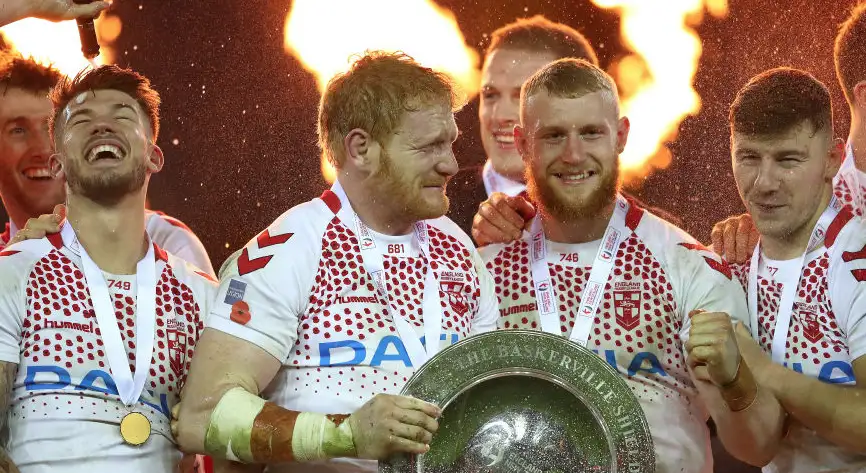LRL column: England and New Zealand took international rugby league to next level with help from Tonga

England and New Zealand deserve huge credit for taking the international game to the next level.
The autumn Test series between the Lions and the Kiwis has been outstanding, with huge hits, great tries and lots of passion on show in every match.
But let’s not forget the historic mid-season Test in Denver either. Just because the Denver Test will not go ahead in 2019, it doesn’t mean that it wasn’t a success.
The Denver Test took the game to a wider audience, a relatively unknown audience and it still brought 20,000 spectators to the Mile High Stadium.
England and New Zealand have faced each other four times this year – too many times for some – but they have done it for the benefit of the sport.
The other tier one nation and current world champions – Australia – have not been fussed about playing internationals until now.
The Kangaroos faced Tonga in a one-off Test following the end of the NRL season and it attracted a sell-out crowd of over 30,000 in Auckland.
That game – coupled with the good crowds for the England-New Zealand games in the United States and England – have shown Australia just how important international rugby league really is.
Tonga have been a breath of fresh air to rugby league over the last 12 months. They, along with Fiji, were an absolute revelation at last year’s World Cup tournament, only just losing out to tier one giants England in the semi-final.
The Mate Ma’a have kept a really strong squad on the back of their impressive campaign a year ago. The likes of Jason Taumalolo and Andrew Fifita have been real advocates about helping build and grow the tier two nations.
The international calendar for the coming years looks really exciting, too.
Great Britain will return in 2019 and will tour the southern hemisphere to face New Zealand, Tonga, Samoa, Fiji and Papua New Guinea.
And England will take on Australia in an Ashes series on home soil in 2020.
The 2019 plan, which was approved by the RLIF following a congress in York, will see an Oceania Cup featuring Australia, New Zealand and Tonga in one group and Samoa, Fiji and Papua New Guinea in the other group.
Australia will also host the inaugural RLIF Nines World Cup in 2019 and the programme will be played every four years with the World Cup and will include the repeat of the Oceania Cup in 2020 and 2022, which will mirror the European Championship in the northern hemisphere.
All of the aforementioned plans point to a very bright future for rugby league.
We can actually look forward, plan and get excited about the future of international rugby league, it seems.
Internationally, rugby league has not been in a better position than what it is in now for a long, long time.
We as fans, players, media and lovers of the game need to embrace it and back as many internationals as we can now because it is the only way we are going to grow as a sport.
We need to put the world’s best players on the world’s biggest stage. The future is vibrant to say the least.